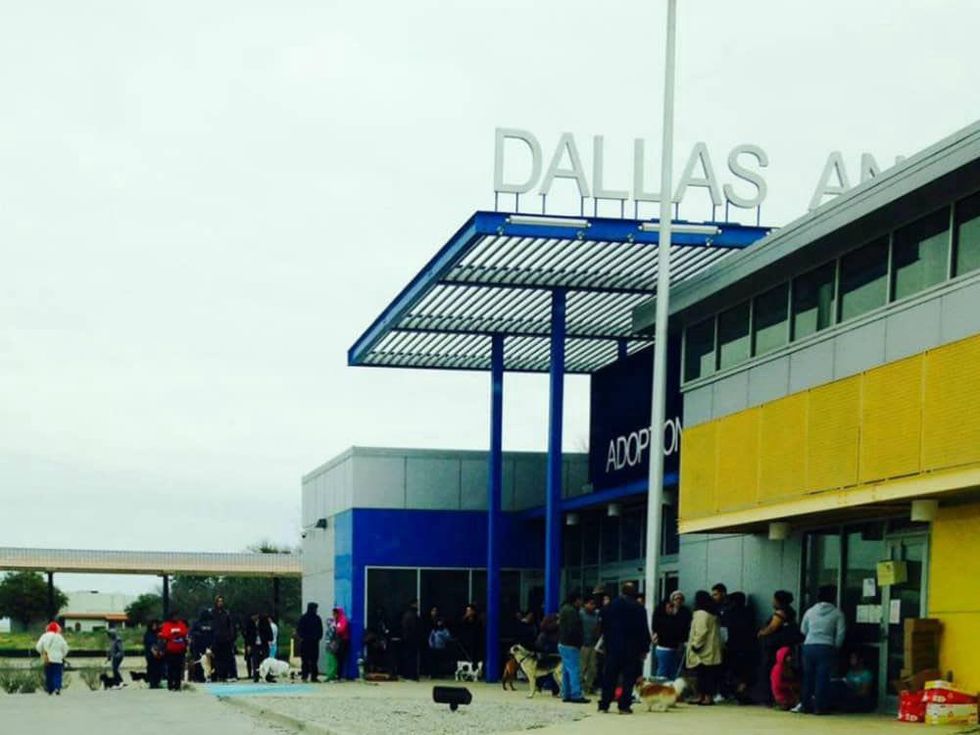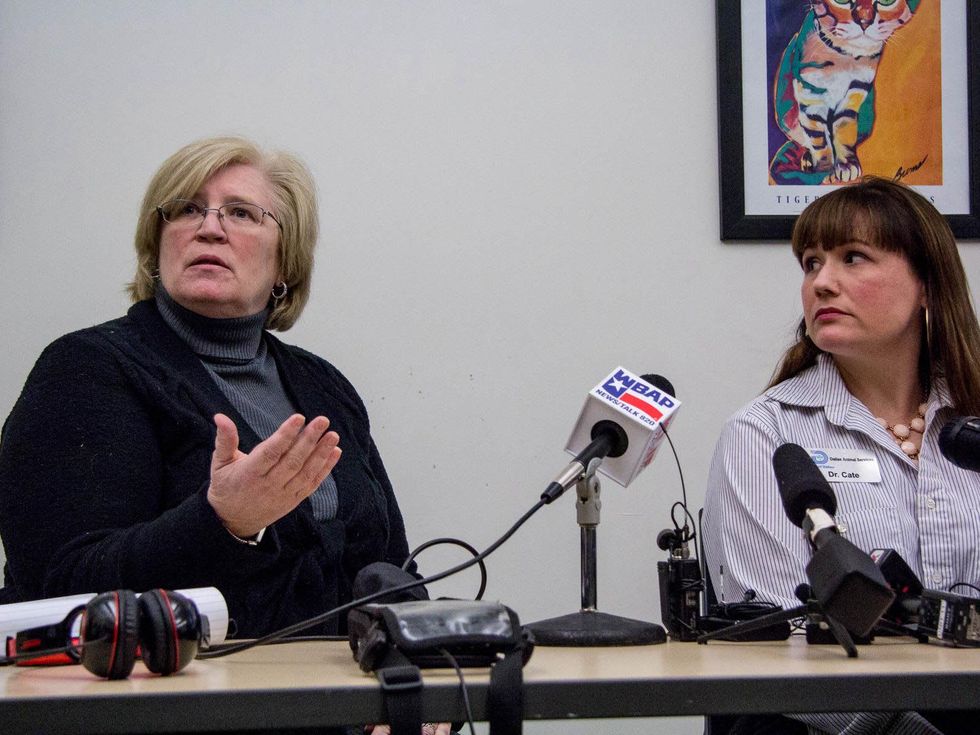Animal Shelter News
Dallas animal shelter employee gets fired in aftermath of euthanasia incident
One employee at Dallas' animal shelter was fired and another suspended following an investigation by the city after four dogs were euthanized in January 2015.
According to a statement from the city, "two employees should have exercised more prudence in the documentation and record verification process. As a result, one of the employees involved was suspended and another has been terminated as a result of his cumulative performance history."
The statement did not identify the employees, but a story in the Dallas Morning News did: Domanick Munoz, who'd worked for the shelter for 10 years. Disclosing personnel information two hours before the city issued its official statement, the newspaper also revealed a long list of disciplinary issues that included tardiness and insubordination.
The dogs were among a group of Australian shepherd mixes found by by Marina Tarashevska, a self-described animal activist who has built a Facebook following by posting photos of dogs roaming in some of Dallas' worst neighborhoods. In late December, she and her comrades came upon a home with dogs living in poor circumstances.
Dallas Animal Services officers, including Munoz, picked up four of the dogs and took them to the shelter. Over subsequent days, staffers noted that the dogs were stressed and unsocial and they were euthanized, based on factors that included health and behavior.
When Tarashevska found out, she unleashed a volley of Facebook outrage, calling the shelter names such as "murderers." The DMN documented it, TV stations followed and an investigation was launched.
Dallas Animal Services manager Jody Jones and veterinarian Cate McManus acknowledged that human error was a factor. But assistant city manager Joey Zapata said that Munoz's termination was the result of a number of personnel violations and not just one.
"We're trying to have sensitivity on this," he says. Munoz did not respond to requests for comment.
Facebook rescue
The shelter processes more than 25,000 animals per year. Since Jones' arrival in 2011, the number of animals that make it out alive has risen significantly; in January 2015, the "live release rate" was 60.1 percent, a new record for January. But the shelter must still euthanize many animals, whose plight goes mostly unnoticed.
These particular four dogs became a cause for Tarashevska and her followers, dubbed "Marina's Groupies." Their rancor might have stayed on Facebook where it belonged were it not for the Dallas Morning News, which published a series of stories on Tarashevska, including one that suggested her as a candidate for Texan of the Year.
The newspaper's decision to spotlight a rescuer with a short history, no credentials (such as a 501c3 status) and a habit of scorching comments toward the shelter — whose ability to respond is restricted by city protocol — has mystified veteran rescue groups who've been helping animals and working successfully with the shelter for years.
"Seeing that the group is called Marina's Groupies and Marina has lived in Dallas for less than two years, never knew what the shelter was like before Jody Jones took over and has been involved with street rescue for less than a year, why are we assuming that this group has any legitimacy other than being well-intentioned and highly emotional?" asks Paige Anderson, president of Animal Rescue of Texas.
Stacy Smith, vice president of Humane Society of Flower Mound, says that it isn't just the lack of a 501c3 status that gives the rest of the rescue community pause. "It is the complete and utter lack of any knowledge, experience, organization or accountability with regard to the dogs they continue to take in," she says.
The "Groupies" page has more than 900 members, but many are not in Dallas or even Texas. Their disorganization is easy to detect even after a cursory read of the Facebook page; members who call themselves adoption coordinators are unaware of basics such as the total number of dogs they've rescued or their whereabouts.
Dogs are shown being swapped from one "foster" to another, or else languishing at boarding facilities. One rescued dog with medical issues ended up dying under a foster's care after two days. Another dog promised to a potential adopter was reneged when Tarashevska decided to keep the dog herself. A founding member of the group quit.
(I was unable to reach Tarashevska because she blocked me on Facebook and I was kicked out of the Groupies page, to which I previously had made donations of dog food, after I wrote a story in January that called her "controversial." And full disclosure, I am on the Animal Shelter Commission, an advisory group that helps ensure that the shelter meets standards required by Texas state law.)
"Rescue is hard, and it's complicated, and there are facets that you can't even imagine until you are in the thick of it," Smith says. She calls the Groupies "a ticking time bomb" and fears that someone might get hurt.
"The dogs in their care are in danger due to a complete lack of experience, knowledge and management of their foster homes, medical conditions and behavioral issues," she says.
Facebook is a tempting source for journalists not up to speed on social media. Seeing someone pick up a dog off the street is heartwarming, but it doesn't even begin to address the bigger problems of culture and human behavior that Jones must solve. Fanned by the media coverage, the furor raised by the Groupies ended up costing Munoz his job — an outcome that they and other rescue groups regret. Unfortunately, a post on the Groupies page vows there'll be a march and other retaliatory steps.
"A seasoned field investigator who has years of experience and a good working relationship with rescues is fired for helping a band of individuals with a hoarding case," Anderson says. "Because of a series of miscommunications by both parties, mistakes were made and four dogs were euthanized.
"The group screamed for justice, wanted retribution and are now angry because a person was fired?"



 Spa Castle is revealing renovations. Photo courtesy of Spa Castle
Spa Castle is revealing renovations. Photo courtesy of Spa Castle